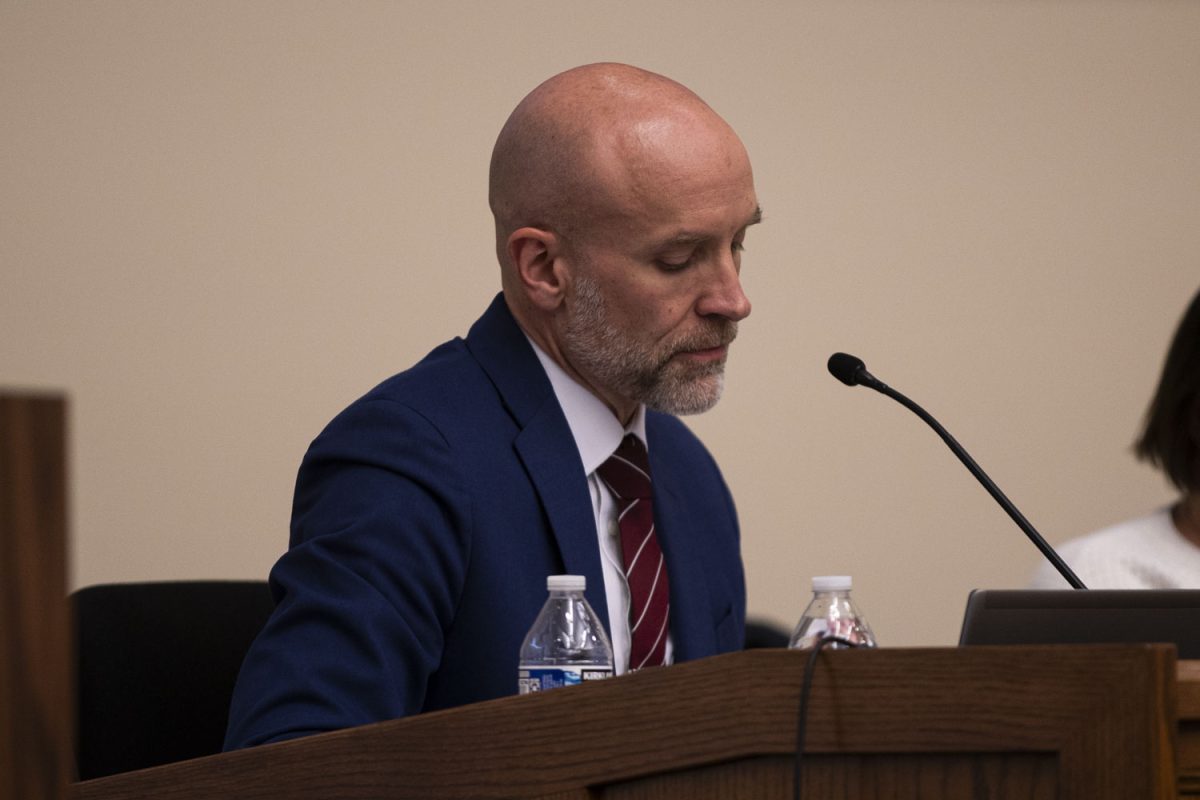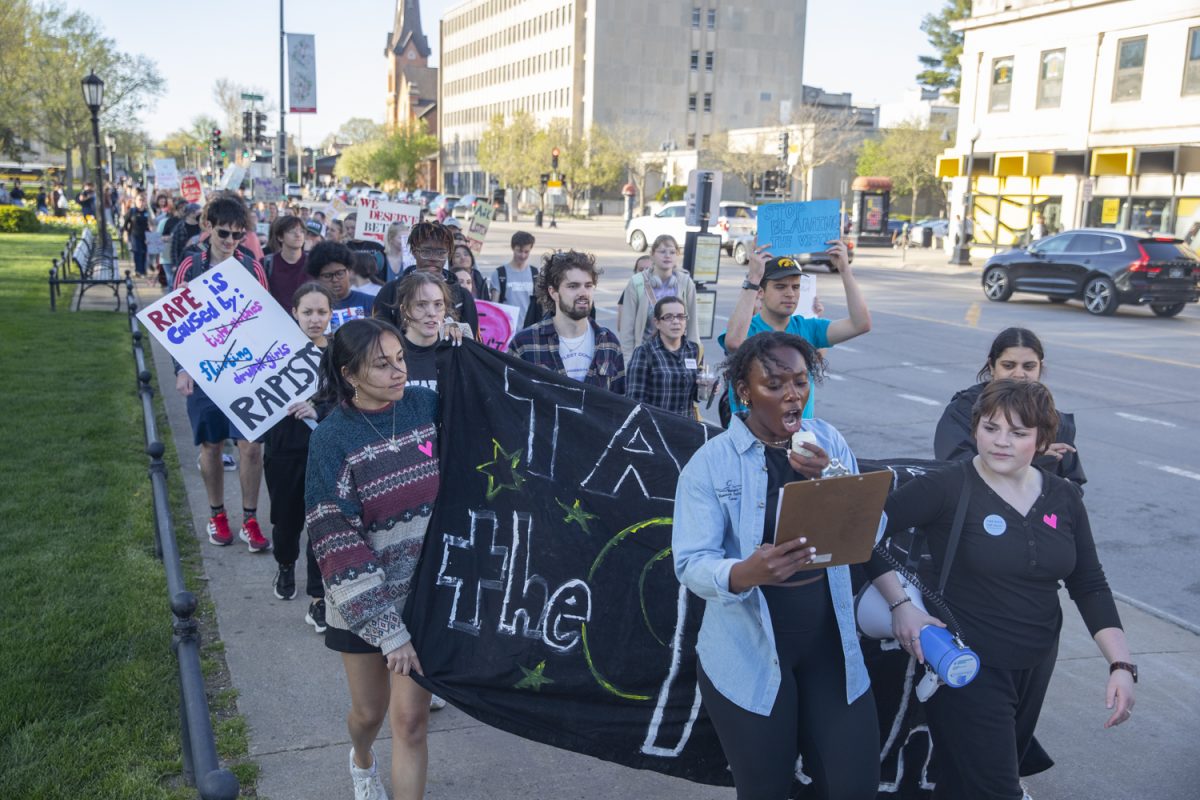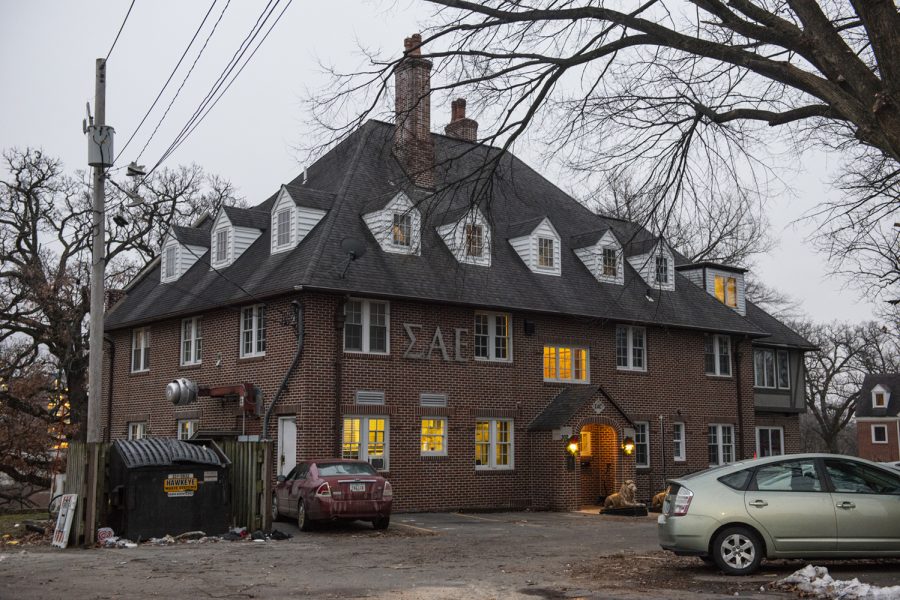More than 40 students, teachers, and community members waited patiently for more than two hours Tuesday for their turn to address the Iowa City School Board, focusing on a multitude of issues.
Budget cuts and the attendance zones for elementary schools received the most discussion.
Many concerns focused on music and language cuts as well as the discontinuation of seventh-grade football.
“It’s very passionate,” said Gregg Shoultz, the principal of Northwest Junior High. “People are passionate about these programs, and it’s [obvious] in the community that they have a strong affinity for music and language, and it’s actually heartwarming to see how these programs are supported.”
The board voted to postpone discussion on attendance zones for elementary schools, noting they wanted to be able to review the boundary maps and become familiar with the suggestions.
“For me, it’s a matter of having more time to digest it,” board President Sally Hoelscher told the crowd. “We are interested in … input, but we are just not ready to discuss this right now.”
Instead of making a decision during the board meeting, the members will discuss the attendance zones during a work session. Following the work session, a public discussion will be held during the second meeting in June.
Board members Marla Swesey, Jeff McGinness, and Chris Lynch said they would like more time to scrutinize the maps before voting.
However, Lynch said a discussion should have still occurred.
Board member Tuyet Dorau advocated an open discussion during a board meeting to improve transparency across the district, and she was upset when the conversation was postponed.
“We basically just shut down an entire room,” Dorau said during the meeting. “I find that to be absolutely deplorable. We are trying to do something so impactful in our district … and then we shut down the people that are supposed to be supporting our district, and we are going to ask for money; this is ridiculous.”
Although discussion on the attendance zones was postponed, many community members shared their views on budget cuts.
“In general, we just want to get back to sustainability and prediction so in the future we know how we’re going to staff and provide … for our students,” Shoultz said.
During the meeting, the board members deliberated over maintaining efforts to gauge success throughout the cuts.
To do so, emphasis will be put on keeping track of participation rates, teacher approval, and teacher reassignments.
“Let’s talk about how we can partner and move forward,” Lynch said. “I don’t like any of these cuts, there’s nothing good here.”
But, he noted, the district needs to move forward with maintaining a sustainable model.
“There may be some challenges short-term, but I think it has to be done,” he said.
Lynch said these cuts were proposed because a priority must be placed on classroom sizes.
Swesey agreed, saying she thinks many teachers, parents, and community members also value smaller class sizes, in order to increase individual time and attention between students and teachers.
“All of those things would be a beneficial, but I think class size is the most important thing right now,” she said.






